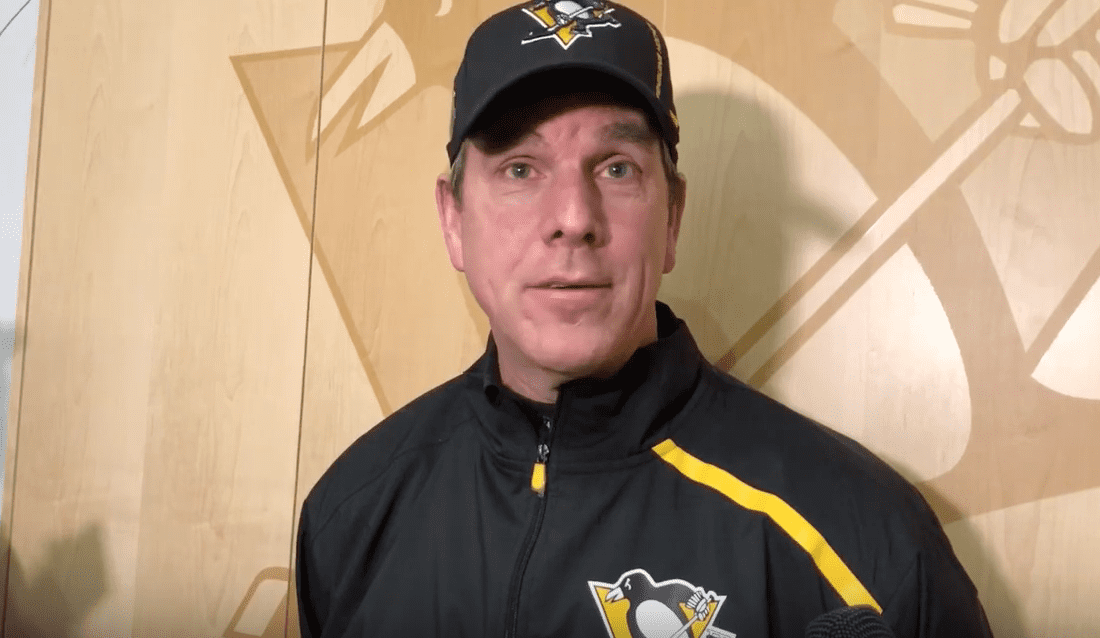Penguins
Dubas in Spotlight, But Will Sullivan Make the Calls?

Pittsburgh Penguins president of hockey operations Kyle Dubas is in the spotlight now. The next moves or inaction will be on his resume and rightly or wrongly attributed to the 37-year-old head of the Penguins hockey department.
From GM decisions to president-level moves, it’s on Dubas.
Except there’s one pretty big caveat, at least this summer. Coach Mike Sullivan is the biggest influence on the future direction of the 2023-24 Penguins.
The reasons for Sullivan’s power are as simple as they are deep. First, the obvious. There’s no one else left. The tertiary staff remaining from the Hextall and Rutherford eras would have little first-hand knowledge of the Penguins’ current roster. The pro scouts are watching other teams.
Sullivan and his assistant coaches would be the primary sets of eyes on who is worth keeping, who played well, and who … did not.
Second, and much deeper, Sullivan is one of the best hockey minds working. That fact has been widely discussed and confirmed, including by Scotty Bowman. When Sullivan identifies trends and needs, he’s usually correct.
As the Toronto Maple Leafs GM, Dubas used picks beyond the first round to find talent. Matthew Knies and Nick Robertson are recent examples.
Dubas also built a large defense corps that was a little light on offensive depth but strong and good in the D-zone. Toronto was built in the same style as the Vegas Golden Knights, with big defensemen, utilization of multiple goalies, and a stacked top-six forwards crew.
The Sullivan-led Penguins have traditionally been constructed differently, especially regarding how Sullivan uses his defensemen. The most extreme, thus easiest, contrast to the Penguins’ defense deployment is Vegas, where coach Bruce Cassidy calls his system “goalie friendly” because he stations the defensemen at the net. The defensemen do not stray or chase coverage high in the zone and rarely go behind the net simultaneously.
Sullivan’s system differs as you’ll often see defensemen at different spots in the zone, and the forwards, primarily the centers, compensate. There are far more moving parts, which is a design to create puck pressure. The Penguins count on centers to get deep in the defensive zone for pressure and to create turnovers. Conversely, Vegas blocks a lot of shots because they will give up the puck in favor of the position.
The Penguins want the puck, and defensemen will go to the walls to battle for it.
Superior speed is required for Sullivan’s style, and if there’s one big reason for the faltering Penguins this season, it was the lack of speed throughout the lineup.
Decisions, Decisions
This week, Dubas hired Jason Spezza as assistant GM. So, there will be a second set of trusted eyes in the front office until Dubas fills out his scouting department and hockey operations with more trusted eyeballs.
However, there just isn’t enough time to watch enough film and gather enough information to come to a fully formed decision without leaning heavily, if not entirely, on Sullivan.
There are decisions still hanging over the Penguins. Mikael Granlund’s future is getting much attention, but he’s low-hanging fruit. His five points in 21 games wasn’t a good enough output for a player getting $5 million, but he’s hardly the only player who should be under scrutiny.
Skipping past other obvious discussion points such as Jeff Carter, well-paid players such as Jeff Petry, Bryan Rust, and Jan Rutta did not have great seasons. What of the future of Jake Guentzel?
There is probably no better resource for projection than Sullivan.
The other decisions will involve salary cap space and salary, such as re-signing Brian Dumoulin and Jason Zucker. However, figuring out their expected level of play and potential roles will be necessary before the team can get to negotiations. Again, the lack of informed staff means Sullivan’s will be the primary input.
The same goes for Tristan Jarry. Dubas can only watch so much tape before asking Sullivan and goalie coach Andy Chiodo.
For those who insist Sullivan is a problem, this observation probably sounds like someone chewing with their mouth open. For those who appreciate Sullivan’s philosophical approach, the situation is flush with opportunities to provide the coach with a proper roster.
Clearly, the last GM wasn’t listening.
Dubas, the new interim GM, has no one else.
The difference can’t be worse, but the results will be telling.












